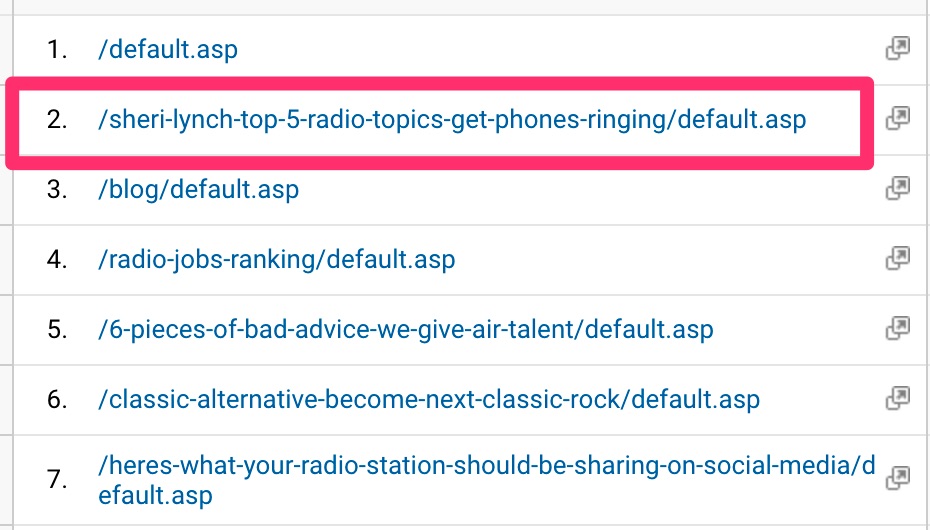 When I talk to radio stations about ways to increase incoming traffic to their website content, they inevitably focus on social media. While social media is an important channel for driving people to your website, it’s only one of the channels available. Another equally (if not more) important channel is search engines — especially Google. Yet all too often radio stations overlook the importance of search engines.
When I talk to radio stations about ways to increase incoming traffic to their website content, they inevitably focus on social media. While social media is an important channel for driving people to your website, it’s only one of the channels available. Another equally (if not more) important channel is search engines — especially Google. Yet all too often radio stations overlook the importance of search engines.
There is a difference between the web traffic that comes from social media and the traffic that comes from search engines. In my experience, social media can result in erratic spikes when a blog post goes viral, but it’s difficult to predict or recreate. Search engine traffic, on the other hand, is steady and, over time, predictable.
On our website, Fred Jacobs writes a daily radio industry blog. From time to time, we invite guest authors to write a “Top 5” list for us. The feature, called “The Guest List,” has proven to be very popular. In fact, several of these guest posts have gone viral on social media immediately after being published.

But the Guest List post from morning DJ Sheri Lynch (WLNK/Charlotte) — one half the Bob & Sheri show — is different. In January, we published a column by Sheri titled, “The Top 5 Radio Topics That Get the Phones Ringing.” On the day it went live, it performed well. But then something unusual happened…
Several months later, Fred pointed out that the column was continuing to show up in our list of top posts. Every day, Sheri’s list would get several dozen pageviews. And to this day, while other posts come and go, Sheri’s shows remarkable consistency.
I dug a little deeper and discovered that the incoming web traffic for the post is coming from Google. People are searching for variations on “good phone topics for radio,” and Google is sending them to Sheri’s column.
While nobody knows exactly what Google’s search results algorithm is, we know it looks for signs that people like what they see when they click on a particular result (for example, a low bounce rate). Once Google determines that a particular piece of content does, in fact, do a good job of addressing people’s search queries, it continually sends people there. This is what is happening with Sheri’s post. Every day, Google sends more people to it.
Over time, that incoming traffic adds up. Sheri’s guest post is now our most popular blogpost for 2017, and our second most popular webpage behind our homepage. That trend is likely to continue for the foreseeable future.

There’s a lesson in Sheri’s post: When you sit down to think about how you can drive more people to your radio station’s website, don’t focus solely on social media while forgetting about search engines. Social media can deliver a nice one-time boost, but for reliable traffic day in and day out, search engines are key.
You can find our Search Engine Optimization resources here.
More Digital Tips
- 5 Targeted Email Campaigns Every Radio Station Should Set Up
- Holiday Gift Ideas for Your Radio Station Colleagues
- 4 Ideas for Evergreen Content for Radio Stations
- Use Vanity URLs to Drive Listeners to Pages on Your Website
- Understanding the Strategy Behind an “Extra Hour of the Morning Show” Podcast
- A Simple Digital Treat to Thank Your Radio Listeners This Thanksgiving - November 13, 2023
- Interview Questions When Hiring Your Radio Station’s Next Digital Marketing Manager - November 6, 2023
- A Radio Conversation with ChatGPT: Part 2 – Promotions - October 30, 2023





Leave a Reply